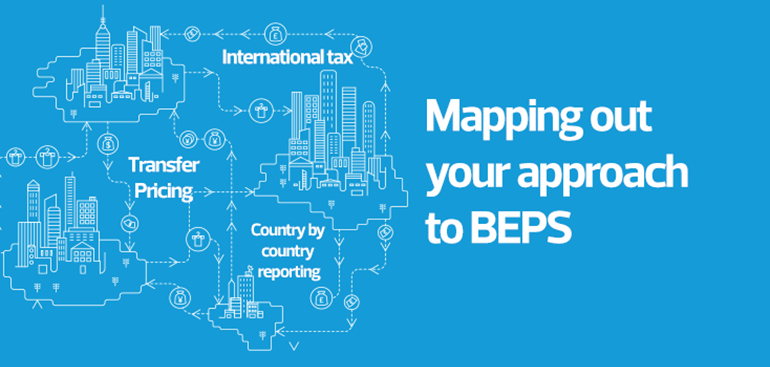A guest blog by Rob Mander, International Tax Services, RSM

The international tax systems of the last decade haven’t kept up with the changing nature and pace of multinational groups of companies. In a world where so much business is conducted across borders, it is important that legislation and, more specifically, tax authorities have sufficient sight of the global allocation of income within multinational organisations.
The BEPS (Base Erosion and Profit Shifting) project was devised by the OECD and G20 in order to address, and rectify, the downfalls in the rules for the international taxation of multinationals. The project aims to address the concerns illustrated by high-profile disputes relating to origin definitions and the use of tax havens that gained a lot of media traction.
In our view it is essential that middle market companies understand the new rules that are starting to take effect in the countries in which they operate. To help with this we have created the International Tax InfoMap that highlights the major changes that are taking place. This will quickly allow users to identify issues that have application for their business and be a starting point to develop an action plan to assess the impact that these issues may have.
While the majority of principles that are affected by the BEPS project have already been laid out, the global implementation of the project are taking time to weave into both domestic tax systems and the tax treaties that deal with the interaction between domestic tax systems. Understanding your tax position when operating internationally and in multiple markets is more important than ever as the global tax system will inevitably change to be consistent with BEPS. Despite the focus on multinational corporations, both small and large corporates will be affected.
Whereas multinational corporations will have the resources and financial capability to cope with the changes that BEPS will bring, Middle market corporates that operate globally across borders will be particularly impacted. At RSM we recognize the key role this sector plays in generating economic growth and their need to streamline resources to get on top of these issues and continue to grow their businesses.
Some countries have introduced rules that aim to minimise the potentially-negative impact of BEPS on smaller businesses (for example to exclude companies with interest below a certain threshold, from the measures that restrict interest deductibility). Also, the new Country-by-Country Reporting template does not apply to businesses with annual consolidated revenue of less than €750 million in the previous fiscal year. However, these exclusions vary from country to country and their availability will need to be checked as part of any action plan.
The BEPS project is a movement, not an isolated plan. The nature of international tax will mean it is constantly having to adapt and evolve as businesses, tax authorities and international tax treaties do so as well. This in itself is a challenge for business. Keeping on top of the ever-changing international tax landscape is no mean feat and it is our job to help clients comb through the complexities.
Systems of tax, whether they be international or domestic, will always need to evolve, as will our international tax map. Our map is a starting point - a way for us to help our clients keep abreast of these changes, stay ahead and ultimately make better decisions for their business.







